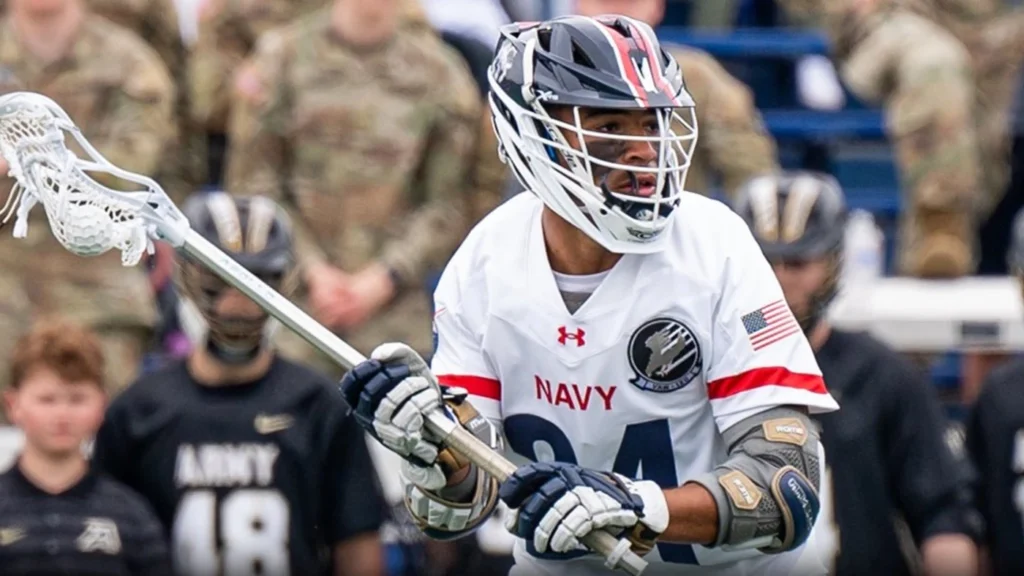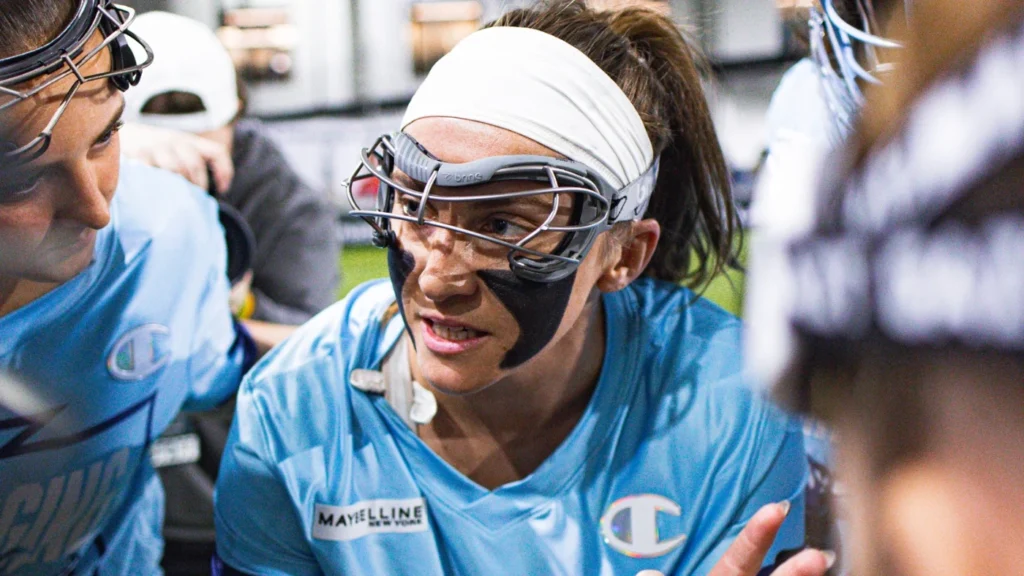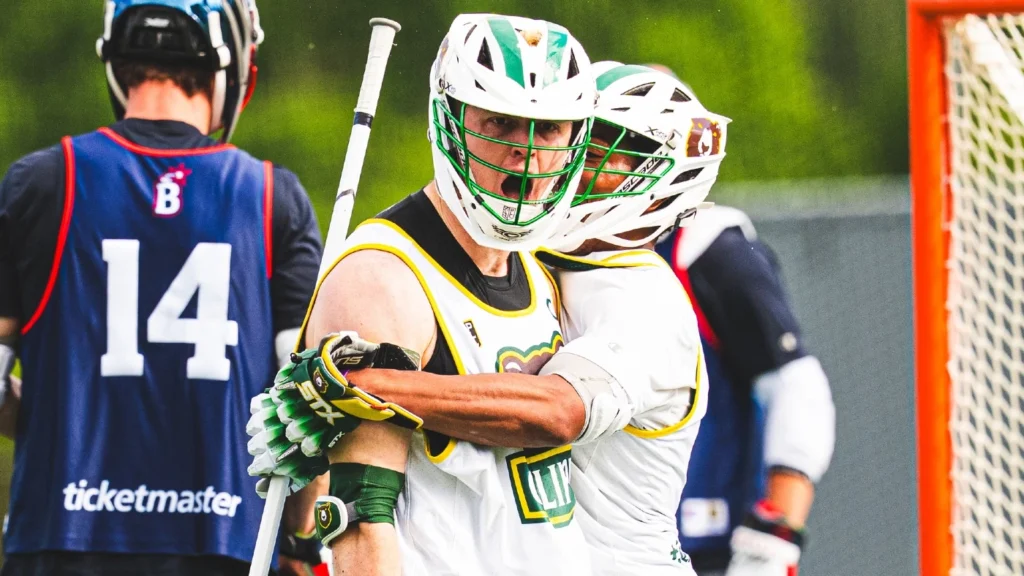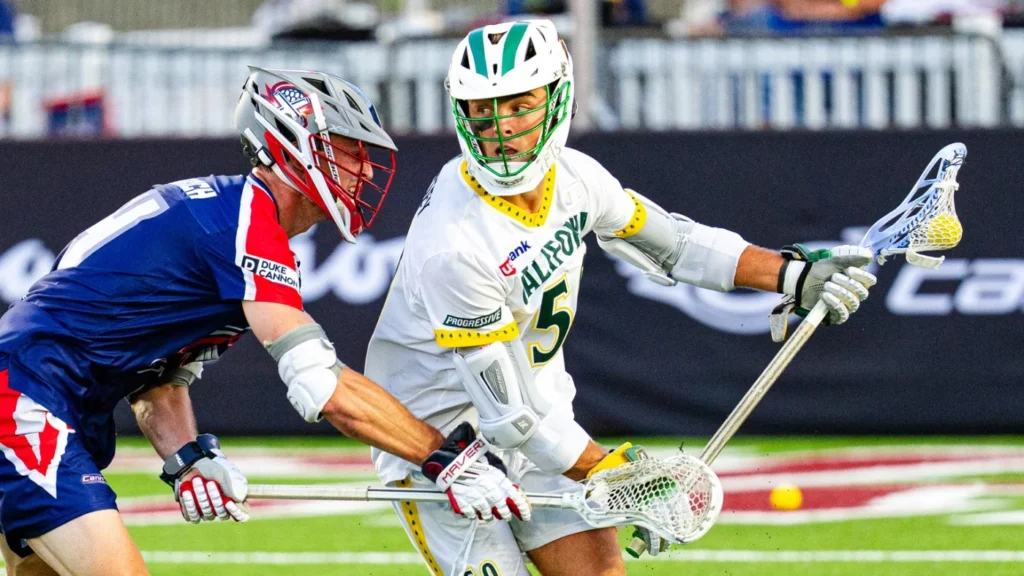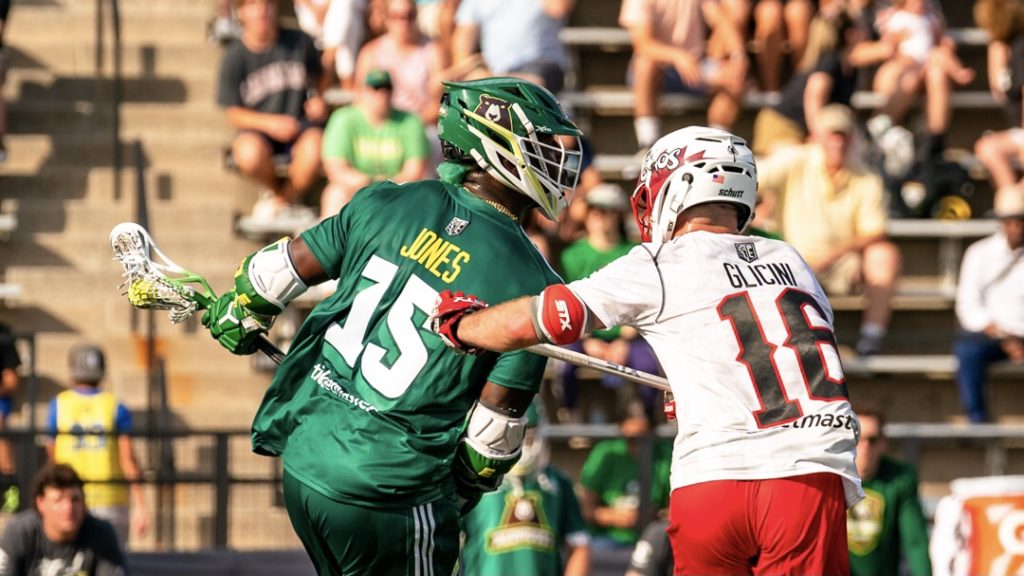
The Making of the Glick: ‘A war against average’
By Josh Schafer | Jul 29, 2021
What Mark Glicini is about to do doesn’t make much sense, at least not to most people. A few feet away from a 100 mph shot, most people would duck. They’d dodge the shot and live to fight another day with an unbruised body. In sports, it’s often known as a business decision, a shrewd, perhaps selfish choice with survival in mind.
But Glicini views business differently than most. It’s why he left his job as a renewable energy broker to pursue a degree in sports psychology. It’s why he’s bet on himself with his own mental health performance company. And, it’s why he’s jumping head first into a 100 mile per hour fastball to secure a win for Chaos Lacrosse Club against the Redwoods in Week 3 of the PLL season.
Normal people: Hopefully the goalie saves the game here@PLLChaos’ Mark Glicini: 😳 pic.twitter.com/eYKbzobMW6
— Josh Schafer (@_JoshSchafer) July 29, 2021
“I do it because I really strongly believe if I'm going to do something it has to be all of me,” Glicini says.
This desperate effort to secure a win isn’t Glicini’s first time blocking a shot and it won’t be his last. In seven games during the PLL Championship Series he tallied six Glicks. Shot blocking isn’t as common in lacrosse as it is in a sport like hockey where the stat is tallied each game.
Many call Glicini a “psycho” for his goalie imitation act. In some ways they aren’t far off. Glicini’s journey to become an actual psycho, a certified sports psychologist, has linked an off-field passion with lacrosse success. In 2018, he founded Mark Glicini Peak Performance which takes a holistic approach to performance training including both physical and mental health. He’s still in school too, studying as a graduate student of Sport & Performance Psychology at San Diego University for Integrative Studies while taking breaks on weekends to chase down the PLL’s top scoring midfielders.
If that seems like mouthful, it’s because it is. His journey into mental performance isn’t just an aid to him on the lacrosse field but rather explains why Mark Glicini is the man who jumps in front of shots, not around them.
Mark Glicini slides to the rollback and blocks the shot.@PLLChaos @mark_glic pic.twitter.com/zfEPbxaozr
— PLL Highlights (@PLLHighlight) August 21, 2020
“Mark is a guy who’s way beyond his years,” Chaos attack Josh Byrne said. “He’s so wise. He’s like a 90 year old dude inside of a twenty-something year old’s body. It’s incredibly important to have someone like that on your team, someone who’s an incredible teammate and will do whatever it takes to make you feel comfortable.”
Glicini’s mental health journey had a similar start to so many nationwide. The trauma came first. Health issues riddled his family and a back injury sidelined Glicini for his final season of high school lacrosse. Glicini didn’t necessarily know it then, but handling all that stress, even adjusting to a quasi assistant coach role as a senior in high school, laid the groundwork for his exploration down the mental health rabbit hole.
He wrote out his feelings to release negative energy and visualized himself returning from injury. Glicini didn’t have names for exercises back then. He didn’t consider them strategies. They were just coping mechanisms for how a young man tackled adversity.
“I wish I had guidance,” Glicini says now. “I wish I had someone I could've gone to.”
Glicini’s first outward acknowledgement of his deep interest in performance psychology came during his junior season at Yale. During Brian Cain’s first meeting with the Yale lacrosse team the mental performance coach asked the room what percentage of sports was made of the mental game.
He asked players to sit down if they thought it was less than 50 percent. Some players sat. He then asked them to sit if they thought it was less than 60 percent. Some more players sat. He asked about 70, and then 80 percent too. Cain climbed up in percentages. Eventually he reached 98 percent. One player remained standing.
“When talent is equal I really think that is the separating factor,” Glicini explained to the room.
Over the next two seasons Glicini consistently engaged with Cain while the Bulldogs captured two Ivy League tournament championships. Glicini even visited Cain’s hotel room the night before a tournament game against Brown to clear his head prior to a league championship. After Yale, Glicini took a traditional path for an economics major at an Ivy League institution. But after two years at a stock brokerage, Glicini called Cain. Glicini wanted to delve all the way into mental health, so Cain guided him to a new mentor.
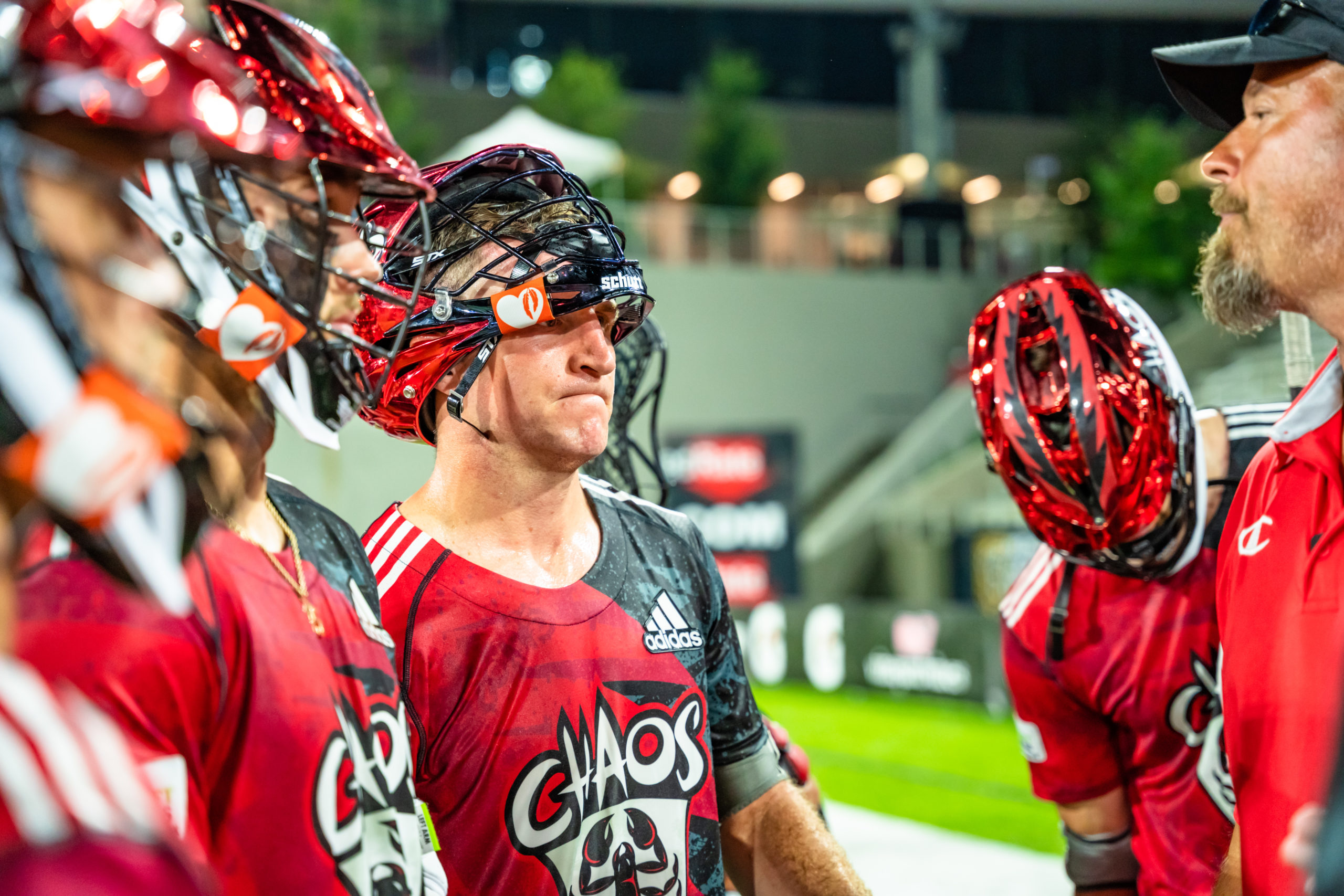
Soon after, Glicini showed up to Dr. Rob Gilbert’s office unannounced. A professor of sports psychology at Montclair State for the past 42 years, Gilbert specializes in applied sports psychology and helps provide specific tools for athletes to train their minds.
Glicini took a graduate level applied sports psychology course with a room full of athletic directors for no academic credit. He stayed late and asked Gilbert questions incessantly. He called Gilbert during bicycle training sessions, sometimes breathing too heavy for Gilbert to discern Glicini’s questions.
For Glicini, those conversations were like calling an older and wiser friend, like Matt Damon and Robin Williams chatting about life on a park bench in Good Will Hunting. Glicini views Gilbert as one of his closest confidants and chuckles at the thought of someone in their late 20s being so close to someone in their mid 70s. They call themselves “soldiers in the war against average.”
“I don't think there's a person in the world that knows more about the physical, mental and emotional side of sports than Mark...Nobody outworks Mark Glicini,” said Dr. Roberts.
After two years serving as a teacher assistant with Dr. Gilbert, Glicini showed up at another door. He enrolled in a program with Dr. Cristina Versari to pursue his master’s degree in Sport & Performance Psychology at San Diego University for Integrative Studies, focusing on the connection of mind, body and spirit. Dr. Versari spent years working with NBA players in the career development field and also helped Olympians master the mental game.
She always asks those athletes a similar set of questions to which she learns the keys to the athlete’s success. The answers are always similar. The players stay later than everyone else. They outwork their peers. There’s always an underlying it factor with them.
Dr. Versari didn’t just find the same with Gilcini, she witnessed it first hand. She’d discuss books in a lecture, just referencing them as a concept, not assigning a reading. Glicini would return to the next class having read the whole thing.
In more than 25 years of teaching, Dr. Versari had never given out an A-plus. No one had gone that far above and beyond. There had always been another accomplishment the student could reach. In Glicini’s first class with Dr.Versari, he earned an A-plus.
“The level of persistence and determination he has is extraordinary,” Dr. Versari said. “Once he commits, he decides he's going to do that, he's all in.”
Glicini often goes “all in” without fully realizing it. The concept stems back to one of his first mental performance classes. In early lessons, Dr. Gilbert presents four giant headed stick figures to students. One head filled with mainly positive thoughts, another is primarily negative. There is also a balanced head, with a perfect mix of positive and negative thoughts, and finally a head with nothing inside it.
The neutral-minded performer always wins, Gilbert ways. The key to success isn’t thinking successfully. It’s thinking neutral and only controlling what can be controlled.
So when he’s staring down a 100mph shot, Glicini jumps.
“I don't think twice about it,” Glicini says. “I never really have.”

